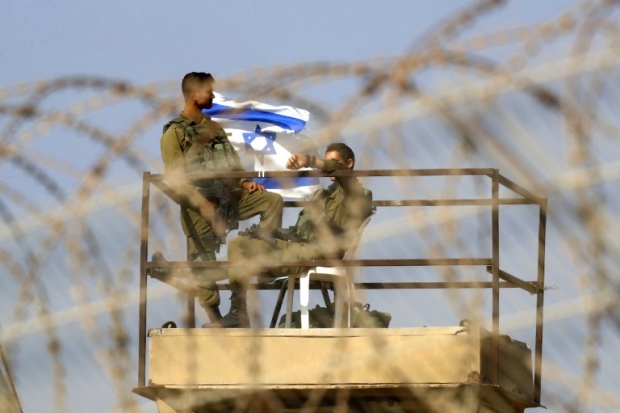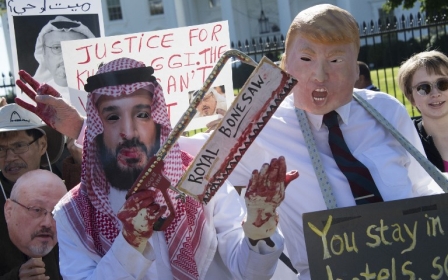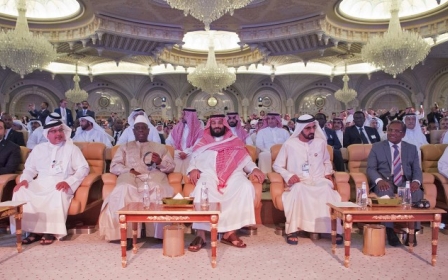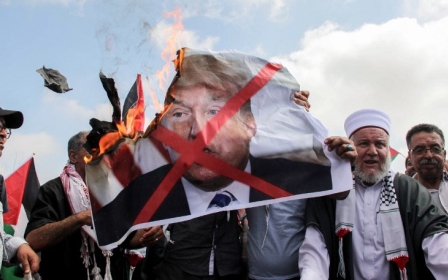The Saudi-Israeli love affair: Traffic jam of the century?
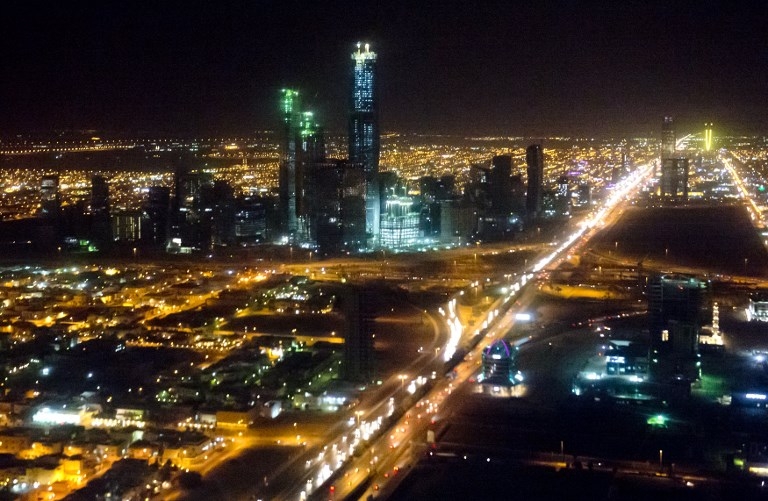
On Thanksgiving Day, Donald Trump participated in a teleconference with members of the US military from his Florida resort in Mar-a-Lago.
The chat elicited many an enthusiastic presidential soundbite, such as: "Good old army. We love the army." The good cheer came to an abrupt end, however, during the post-teleconference press briefing, when Trump was forced to field a couple of questions about the October murder of US-based Saudi journalist Jamal Khashoggi at the Saudi consulate in Istanbul.
Asked whether the CIA was in possession of a recording of Saudi Crown Prince Mohammad bin Salman demanding that Khashoggi be silenced, the president responded: "I don't want to talk about it. You have [to] ask them."
Combating terrorism?
And yet, he did manage to talk at length about how, regardless of who ordered the murder, "we have a very strong ally in Saudi Arabia" - which, in addition to helping make America great in many other ways, had apparently also facilitated Trump's self-marketing as the god of cheap gasoline: "I see that yesterday, [in] one of the papers, I was blamed for causing traffic jams because I have the oil prices so low ... let's have some traffic jams."
Also working in the Saudis' favour, according to Trump's analysis, was that "Israel would be in big trouble without Saudi Arabia" - a statement that generated some backlash from Israelis peeved at the suggestion that anyone but Israel was to thank for staving off big trouble in the world.
Trump's Thanksgiving Day allusion to the Saudi-Israeli alliance - a subject that has generally fallen under the category of Things We Absolutely Do Not Talk About - was merely one of a recent string of similar comments
Incidentally, Trump's Thanksgiving Day allusion to the Saudi-Israeli alliance - a subject that has generally fallen under the category of Things We Absolutely Do Not Talk About - was merely one of a recent string of similar comments.
In an October interview with the Wall Street Journal, Trump praised Saudi Arabia as "a very good ally with respect to Iran and with respect to Israel". A presidential statement issued on 20 November - headlined with the exclamation "America First!" - once again addressed the centrality of the Saudi kingdom to "our very important fight against Iran," with support for Saudi Arabia being crucial to "ensure the interests of our country, Israel and all other partners in the region".
Among these interests, we are told, is "our paramount goal to fully eliminate the threat of terrorism throughout the world!" But while this may indeed sound like a noble aim, it is presumably not best achieved with the help of the state that has spent the past 70 years terrorising Palestinians, or the one currently presiding over the terrorisation of Yemen (and that also happened to produce 15 of the 19 9/11 hijackers).
Challenging regional hegemony
Nor, of course, should the country that has flung billions of dollars annually at Israel, supplied the Saudis with bombs that massacre Yemeni schoolchildren, and consistently proven its flair for slaughtering civilians throughout the world be put in charge of planet-wide counterterrorism operations. Granted, the perks of being the global superpower include the freedom to do all of these things while simultaneously insisting that Iran - which has done literally nothing on a similar scale - is somehow miraculously the leading state sponsor of terrorism.
What Iran has done, by contrast, is challenge the regional hegemony of the US-Saudi-Israeli axis - an unforgivable affront to empire that must be countered by ever-increasing militarisation and inflows of capital to the US arms industry.
A November Bloomberg article titled "Israel Stands by Saudi Prince Against Iran, Despite Khashoggi" emphasises that Israeli Prime Minister Benjamin Netanyahu "doesn't want the [murder] controversy to shatter his country's quiet, emerging alliance with the kingdom against a common enemy - Iran".
But while the alliance might as yet be "quiet," the article notes that "the two countries have long carried on secret political, intelligence and commercial relations - some involving Israel's biggest defence contractors".
Ticking off Israel's wish list
Now, as speculation mounts that the Saudis will endorse Trump's promised "deal of the century" in Israel-Palestine - which even the Financial Times, of all outlets, described as "offer[ing] nothing good to Palestinians" and simply "ticking off most of the Israeli right's wishlist" - it seems the Saudis and Israelis may be en route to being openly in bed together.
In an interview with bin Salman published back in April, The Atlantic's Jeffrey Goldberg, himself a dedicated Zionist and anti-Iranian fanatic, noted auspiciously that a "key - though sub rosa - member of Prince Mohammed's alliance is Israel, a country about which Prince Mohammed did not have a bad word to say".
If anyone has the right to be 'tired' at the moment, it's the Palestinians who have suffered no fewer than seven decades of ethnic cleansing, carnage and general abuse at the hands of Israel
Goldberg specified in the introduction to the interview that his meeting with bin Salman "took place before the recent fatal violence on the Gaza-Israel border," but surmised: "I do not believe that the crown prince would have moderated his views in light of these events. The Saudis, like many Arab leaders, have tired of the Palestinians."
Given the rather incessant nature of "fatal violence" against Palestinians - thanks to which, for example, the elimination of 60 Gazans in a single day is simply par for the course - readers will be forgiven for forgetting which particular bloody episode Goldberg was oh-so-diplomatically referring to.
Contemplating the future
If anyone has the right to be "tired" at the moment, it's the Palestinians who have suffered no fewer than seven decades of ethnic cleansing, carnage and general abuse at the hands of Israel. A similar right might be extended to those under brutal assault by Saudi Arabia & Co in Yemen, where, as NBC News reports, "more than 85,000 children have died because of a war-induced famine in the country and millions are on the brink of starvation".
To be sure, it's precisely this panorama that must be taken into account when contemplating the future of an increasingly normalised Saudi-Israeli love affair.
When asked during his Thanksgiving Day press briefing who should be held accountable for the Khashoggi killing, Trump suggested: "Maybe the world should be held accountable, because the world is a vicious place. The world is a very, very vicious place."
And with so much viciousness now intersecting in the Middle East, we may be in for the traffic jam of the century.
- Belen Fernandez is the author of The Imperial Messenger: Thomas Friedman at Work, published by Verso. She is a contributing editor at Jacobin magazine.
The views expressed in this article belong to the author and do not necessarily reflect the editorial policy of Middle East Eye.
Photo: The skyline of Riyadh is pictured at night (AFP)
Middle East Eye propose une couverture et une analyse indépendantes et incomparables du Moyen-Orient, de l’Afrique du Nord et d’autres régions du monde. Pour en savoir plus sur la reprise de ce contenu et les frais qui s’appliquent, veuillez remplir ce formulaire [en anglais]. Pour en savoir plus sur MEE, cliquez ici [en anglais].



